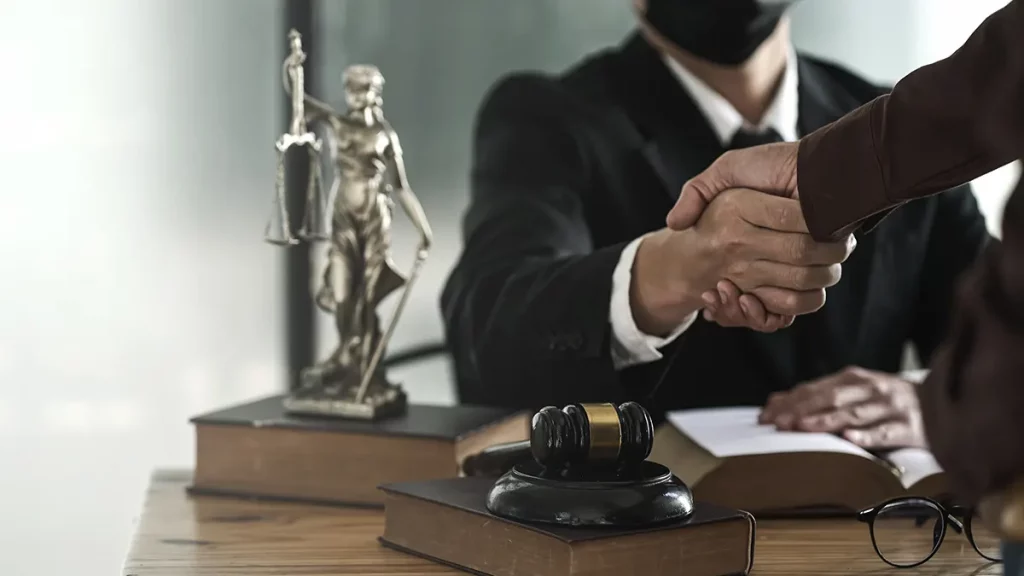Proof of Execution by Subscribing Witness
A subscribing witness is an individual who conducts proof of execution by witnessing the signing of a document or taking the principal’s acknowledgment. The witness must be present when the signing or acknowledgment occurs and must attest to it in front of a Notary Public.
The Notary will then certify that the witness was present at the time of signing or acknowledgment, and the witness will then be required to sign the document as proof of execution. In some situations, a subscribing witness may be able to sign the document on behalf of the principal if authorized to do so.
This is often done in cases where it is not possible for the principal to physically sign the document, such as in cases of serious medical illness or disability. In such cases, the witness must provide a statement of facts under oath or affirmation to the Notary that they are authorized by the principal to sign on their behalf.
A subscribing witness provides important legal protection and holds both parties accountable should any dispute arise over the validity of a signature or acknowledgment. The credibility of witnesses can be key in a court of law, and the presence of a subscribing witness helps to ensure that documents are signed or acknowledged in accordance with the law.

In addition to their role in providing legal protection, subscribing witnesses also provide important support for those who may be unable to physically sign or acknowledge documents due to illness or disability.
The signing process can be conducted in a way that is respectful of the principal’s needs and wishes, and witnesses can be on hand to make sure that documents are executed properly. By providing this service, subscribing witnesses help to ensure that everyone’s rights are respected when signing or acknowledging important legal documents.
The role of a subscribing witness is an important one, as it helps to ensure the validity of documents and protect the rights of both parties involved. By working in conjunction with a Notary Public, subscribing witnesses can help to guarantee that all legal requirements are met when it comes to executing important documents.
A subscribing witness is an important part of the document execution process and provides valuable legal protection and assistance to those who may be unable to physically sign or acknowledge documents on their own.
By working with a Notary Public, subscribing witnesses help ensure that all legal requirements are met when executing important documents and that the rights of everyone involved are respected.
Some additional Q&A
What is a proof of execution?
A proof of execution is a document which shows that a particular action has been completed. It’s usually produced as an affidavit or other written testimony signed by the witness, confirming that they observed the action and can confirm its validity. This type of proof is typically used in legal and financial contexts to verify actions taken by individual parties or organizations. In particular, it is often used to verify the execution of a contract or other legal document.

The subscribing witness proof of execution is one of the most common forms of this type of documentation. It requires a witness to sign an affidavit confirming that they saw the persons involved in signing the document, understood what was being signed, and can confirm that the document was properly executed. This type of proof is often required when a contract or other legal document must be authenticated by an independent third party.
For further insights, See Proof of execution at Law Insider.
What is the testimony of a subscribing witness?
Testimony of a subscribing witness is when an individual’s signature on a document serves as evidence that the person witnessed another individual executing or signing the same document. It is usually used in instances where it is not possible to have all parties present at once, such as if one of the parties lives in a different state or even country. This type of witness is typically used in legal contracts, documents and other official proceedings. In order for the testimony of a subscribing witness to be valid, the individual must have seen the document being signed by all parties present and witnessed that all signatures were made voluntarily.
The subscribing witness should also be able to provide detailed information as to what they observed while at the signing. The subscribing witness’ signature and/or statement on the document serves as proof that they were present at the time of signing. This type of witness is considered to have more legal authority than a non-subscribing witness, which is simply someone who was not present when the document was signed.
While testimony of a subscribing witness is considered to be more reliable than that of other types of witnesses, it should still be used with caution and only when absolutely necessary. It is important that the witness fully understands the document they are signing and can vouch for all parties being present during the signing process.
Additionally, if any changes or modifications are made to the document after the witnesses sign it, they must be notified and given a chance to re-witness these new changes.
Overall, testimony of a subscribing witness is a reliable way for parties to ensure that an official document was signed by all necessary parties in their absence. It is important that this type of witness understands the importance of their signature and knows exactly what they are vouching for. By taking all the necessary precautions, parties can ensure that the document is valid and legally binding.
Does a subscribing witness have to be identified?
Yes, a subscribing witness must be identified in order to provide proof of execution. The witness must sign or affix their mark on the document to certify that they have witnessed the execution of the document and are willing to testify to its validity if needed.
Depending on the state, a notary public may also be required to serve as an additional witness or to notarize the document. In cases where a witness is required, they must be able to provide identification such as a driver’s license or passport in order to prove that they are who they say they are. It is important for the signing parties to ensure that the witness is impartial and unconnected with the agreement in any way.
The witness should also be competent to understand the document and its implications. A subscribing witness is an important part of providing proof of execution, as their signature serves as confirmation that the document has been executed properly.
For more insights on ID, see our article on Verify Identity of the Signer.

